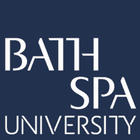About Bsc (hons) Geography in Bath Spa University
Geography is about places and people. This link between environmental processes and social behaviours means that the study of Geography is essential in understanding today’s pressing global and local issues – from climate change to sustainable development.
During your Bath Spa Geography degree, you’ll study specialisms such as poverty and development, sustainability, cultural identities and representation, river and coastal processes, and geotechnologies. You’ll mix fieldwork and data collection techniques with a further understanding of communities and environments.
You’ll develop your knowledge of a wide range of geographical concepts and theories, all while gaining skills that employers look for: communication, research, data management and analysis, problem solving and IT skills – specifically in Geographic Information Systems (GIS) and remote sensing. You'll also produce a video-clip and a personal website in your second year.
Want to specialise?
You could study Geography alongside another subject as part of a combined course. We also offer specialist courses in:
- Human Geography
- Physical Geography
- Global Development and Sustainability
Not sure which pathway is right for you? Read our blog post on choosing the right Geography degree.
We take an integrated approach to Geography; you’ll gain an understanding of both the human and physical aspects of the subject. As your curiosity, abilities and career plans evolve, you can choose to specialise in the aspects of Geography – whether physical or human – that interest you.
The best Geography university courses are characterised by meaningful partnerships between students and staff. We’re a small, accessible team and we take the time to get to know you. Research – at the cutting edge of diverse topics such as global challenges, migration, identities and citizenship – underpins our teaching.
Our rural campus is in itself a natural laboratory that gives you the opportunity to use your growing skills, alongside state of the art equipment (GIS, satellite data and Geotechnologies), to investigate the world on your doorstep.
You’ll graduate with a range of skills that are highly valued by employers, from scientific techniques and computer skills to people skills such as communication, teamwork, independent research, data collection, fieldwork and critical thinking.
Work placements, industry links and internships
There are opportunities to undertake work placements in your second year – this is an excellent way to gain experience in the workplace. Students have worked with local organisations such as Send a Cow, African Initiatives, Local Planning authorities, environmental organisations and the National Trust.
Guest speakers from industry contribute to the learning experience throughout the course. This engagement with potential employers will help you make those all-important career decisions when you graduate.
Academic qualification equivalents
- Higher Secondary School Certificate/Indian School Certificate (standard XII) from the following boards CBSE/CISCE/WBCHSEB, with 65%, including grade C in at least five subjects.
English language requirements (one of the below):
- IELTS:Academic 6.0 overall This must include a minimum of 5.5 in Listening, Speaking, Reading and Writing.
- TOEFL iBT: A total of 72, to include a minimum 18 in Reading, 17 in Listening, 20 in Speaking, and 17 in Writing.
- PTE: This must include a minimum of 51 in Listening, Speaking, Reading and Writing.
Bath Spa University Highlights
| Type |
Public |
| Campus Setting |
Urban |
| Tuition Fees for International Students (full-time degrees in 2020-2021) |
13,700 GBP - 15,300 GBP (varies with the courses) |
| Campus Housing Capacity |
25% |
| Student Retention Rate |
89% |
| Scholarship Availability |
Yes |
| Applications Accepted |
Online |
| Work-Study |
Available |
| Intake Type |
Yearly |
| Mode of Program |
Full time and part-time |
Bath Spa University Average Tuition Fees And Other Expenses
International students joining the Bath Spa University are required to pay 70% of the tuition fees on or before arrival and commencement of the course. All payments should be made in £ sterling and the easiest way to make a payment is via Flywire. However, the payment can also be made through credit/debit card.
International students should open a UK bank account as soon as possible after arrival.
The estimated cost of attendance depends on several factors like the program applied for, tuition, books, fees, housing, dining, and personal items.
| Expenses In GBP |
Undergraduate (per annum) |
Graduate (per annum) |
| Tuition Fee for International Students (full-time courses) |
13,700- 15,300 (varies with the field of study chosen) |
13,700- 15,300 (varies with the field of study chosen) |
| Career and Professional Development Fees |
145 |
145 |
| Housing and Rooms |
8,412 |
8,412 |
| Health Insurance |
150 |
150 |
| Books and Supplies |
500 |
500 |
| Meals |
3,225 |
3,225 |
| Personal Expenses |
792 |
792 |
